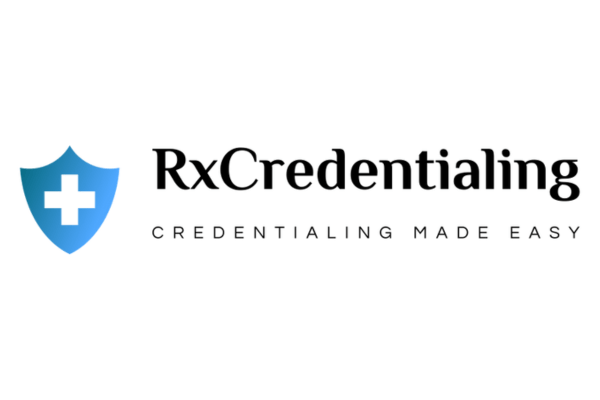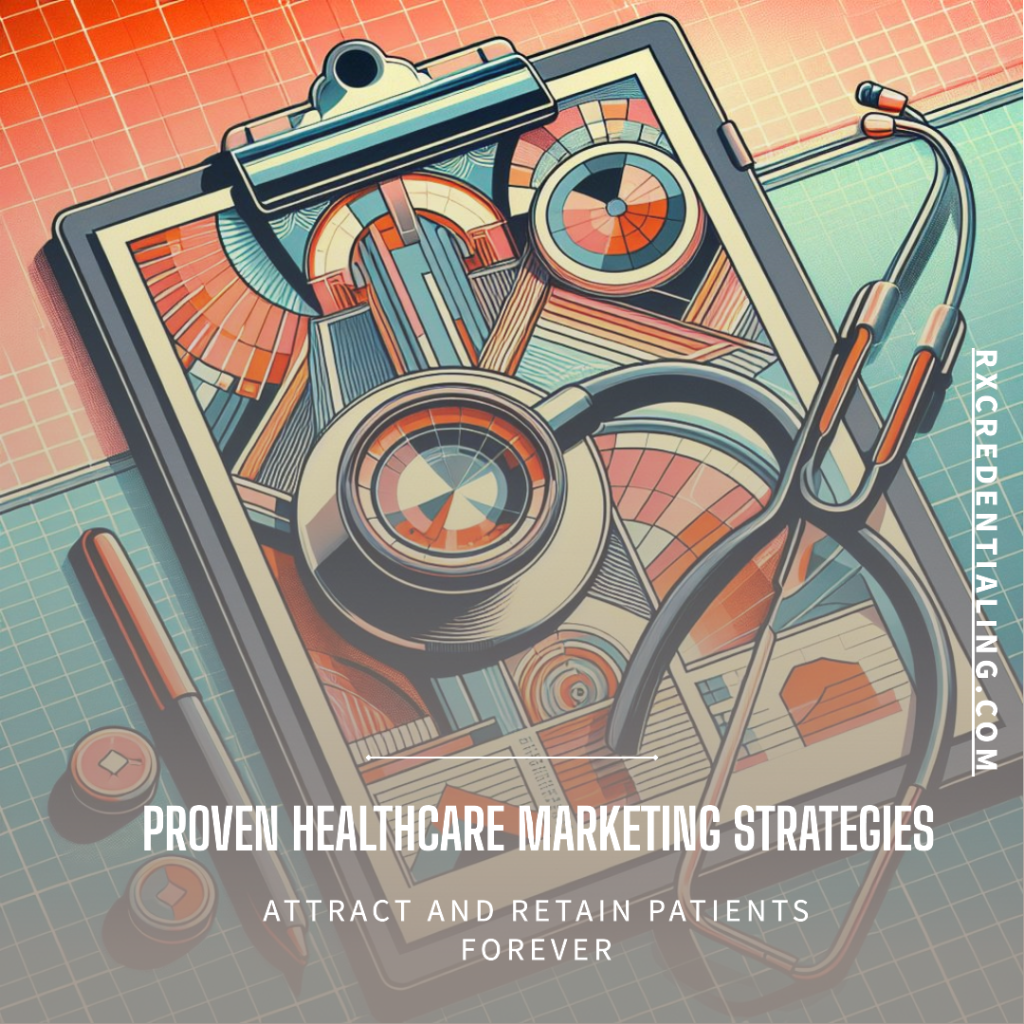In the rapidly evolving landscape of healthcare marketing, staying ahead of the curve is essential to attract and retain patients in 2024.
Implementing cutting-edge strategies can set your healthcare organization apart and drive patient engagement.
Let’s explore 15 innovative healthcare marketing strategies that can revolutionize patient outreach and retention in the coming year.
Key Takeaways
- Personalized patient engagement is crucial for building strong relationships with patients and enhancing their overall experience.
- Leveraging AI-driven predictive analytics can help healthcare organizations make data-driven decisions and personalize patient care.
- Content marketing with E.A.T. principles (Expertise, Authoritativeness, Trustworthiness) can establish credibility and attract a loyal patient base.
- Creating an omnichannel patient experience ensures seamless interactions across various touchpoints, enhancing patient satisfaction and loyalty.
- Incorporating voice search optimization can improve accessibility and visibility, making it easier for patients to find relevant healthcare information.
1. Personalized Patient Engagement
In the realm of healthcare marketing, personalized patient engagement stands out as a pivotal strategy for 2024. By leveraging data analytics and patient history, healthcare providers can tailor their communications and services to meet the unique needs of each individual.
- Utilize patient data to create customized health plans.
- Send personalized reminders for appointments and medication.
- Offer individualized health content based on patient interests and history.
Embracing personalization not only enhances patient satisfaction but also fosters a sense of loyalty and trust towards the healthcare provider.
It’s a proactive approach that anticipates patient needs and preferences, leading to better health outcomes and a more efficient healthcare system.
2. Telehealth Promotion Campaigns
In 2024, telehealth services are not just an option but a necessity for healthcare providers aiming to stay competitive.
Effective promotion of telehealth services ensures that patients are aware of and comfortable using these virtual care options.
To maximize reach and engagement, healthcare marketers are adopting a multi-faceted approach:
- Utilizing social media platforms to highlight the convenience and effectiveness of telehealth.
- Email marketing campaigns that provide easy instructions and benefits of telehealth services.
- SEO strategies to improve visibility for telehealth-related searches.
Emphasizing the personal touch in telehealth can help overcome patient apprehensions about the lack of face-to-face interaction.
By integrating these strategies into a cohesive campaign, healthcare providers can attract new patients and retain existing ones, ensuring that their telehealth services are not just available, but actively utilized.
3. AI-Driven Predictive Analytics
Leveraging AI-driven predictive analytics is transforming healthcare marketing by enabling personalized patient outreach and improving care outcomes.
By analyzing vast datasets, AI algorithms can forecast health trends, identify high-risk patient groups, and tailor marketing strategies to address individual needs.
- Predict patient behaviors and preferences
- Optimize resource allocation
- Enhance patient engagement
- Improve healthcare service delivery
The integration of predictive analytics into marketing efforts ensures that healthcare providers are not only reaching out to the right patients at the right time but also offering services that are most relevant to their current and future health needs.
Healthcare organizations that adopt predictive analytics can gain a competitive edge by preemptively addressing health issues and fostering a proactive healthcare environment.
This strategic approach leads to increased patient trust and loyalty, which are crucial for long-term success in the healthcare industry.
4. Content Marketing with E.A.T. Principles
In the realm of healthcare marketing, content is king, but not all content is created equal. The E.A.T. principles—Expertise, Authoritativeness, and Trustworthiness—have become the cornerstone of successful content marketing strategies.
By focusing on these principles, healthcare providers can ensure that their content not only reaches their audience but also resonates with them on a deeper level.
- Expertise: Highlight the qualifications and experience of healthcare professionals.
- Authoritativeness: Share insights and knowledge that position your brand as a leading voice in the healthcare industry.
- Trustworthiness: Build credibility through transparent communication and evidence-based information.
Embracing E.A.T. principles in content marketing not only improves visibility in search engine rankings but also fosters a sense of reliability and confidence among patients.
It’s about creating content that patients can depend on for accurate and helpful information.
Healthcare organizations should regularly audit their content to ensure it aligns with E.A.T. standards.
This involves reviewing the accuracy of information, the credentials of content creators, and the overall quality and relevance of the published material.
By doing so, they can maintain a competitive edge in a market that increasingly values authenticity and informed decision-making.
5. Omnichannel Patient Experience
In 2024, healthcare marketing transcends traditional boundaries by embracing an omnichannel patient experience. This strategy ensures that patients receive a seamless and consistent experience across all platforms and touchpoints, from social media to in-person visits.
- Website: Easy navigation, appointment scheduling, and access to health records.
- Mobile Apps: Personalized health tracking and notifications.
- Social Media: Engaging content and responsive communication.
- In-Person: A welcoming environment and efficient service.
By integrating these channels, healthcare providers can offer a holistic approach to patient care and communication, fostering trust and loyalty.
The key to successful omnichannel marketing lies in the meticulous integration of data and systems, allowing for a unified view of the patient journey.
This approach not only enhances patient satisfaction but also streamlines operations, leading to increased efficiency and reduced costs.
6. Voice Search Optimization
With the rise of smart speakers and voice-activated devices, optimizing for voice search is becoming increasingly important in healthcare marketing.
Patients are now using voice search to find health information and local services more frequently.
To capitalize on this trend, healthcare providers should focus on conversational keywords and FAQs that align with natural speech patterns. Here are some strategies to consider:
- Ensure your website content answers common patient questions.
- Optimize for long-tail keywords that mirror spoken language.
- Implement schema markup to help search engines understand and index your content more effectively.
By optimizing for voice search, healthcare organizations can improve their visibility in voice search results, making it easier for patients to find them using devices like smartphones and smart speakers.
Remember, voice search optimization is not just about being found; it’s about providing the information in a way that’s concise and easily digestible via voice.
This requires a nuanced understanding of how patients ask questions and the type of responses they expect.
7. Video Marketing for Healthcare Education
In the digital age, video marketing has become a cornerstone for healthcare education. Engaging video content can significantly enhance patient understanding and retention of complex medical information.
Short, informative videos can be used to explain procedures, showcase patient testimonials, and provide health tips, making medical knowledge more accessible and digestible.
- Create animated explainer videos for complex topics.
- Develop live-action videos for personal patient stories.
- Utilize webinars for in-depth discussions on health issues.
By leveraging the power of visual storytelling, healthcare providers can create a more compelling and memorable educational experience for patients.
The versatility of video content allows for a range of formats to suit different learning styles and preferences.
From 3D animations illustrating surgical procedures to Q&A sessions with healthcare professionals, video marketing offers a dynamic way to connect with and educate patients.
8. Influencer Partnerships in Health Niches
Leveraging the trust and reach of influencers in specific health niches can be a powerful strategy for healthcare marketing.
Influencers can authentically communicate your message to a targeted audience that respects their opinions and recommendations.
- Identify relevant influencers in your niche.
- Collaborate on content that aligns with both your brand values and the influencer’s audience.
- Measure the impact of influencer partnerships on patient engagement and acquisition.
By partnering with influencers, healthcare providers can tap into pre-established communities and create a ripple effect of awareness and trust.
It’s essential to choose influencers who are genuinely passionate about healthcare and can speak knowledgeably on topics related to your services.
Remember, the goal is to build long-term relationships with influencers who can become brand ambassadors, not just one-off campaign participants. This approach can lead to sustained patient interest and loyalty.
9. Mobile Health Apps Advertising
In the digital age, mobile health apps have become a cornerstone for patient engagement and healthcare management.
Advertising these apps effectively can significantly increase their adoption and usage. Marketers are leveraging targeted ad campaigns to reach potential users on various platforms, including social media, search engines, and within other apps.
- Identify your target audience and their needs
- Utilize app store optimization (ASO) techniques
- Engage users with compelling ad copy and visuals
- Analyze and adjust campaigns based on performance metrics
By focusing on the user experience and value proposition, healthcare providers can create ads that resonate with patients and encourage them to take an active role in their health.
The success of mobile health apps advertising lies in understanding the patient journey and aligning marketing strategies with patient needs and preferences.
Continuous optimization and personalization of ad campaigns are essential to stay relevant and effective in the ever-evolving healthcare market.
10. Virtual Health Fairs and Webinars
In the digital age, Virtual Health Fairs and Webinars have become a cornerstone for healthcare marketing.
They offer a platform for healthcare providers to showcase their services, share knowledge, and engage with patients from the comfort of their homes.
- Virtual Health Fairs allow for interactive booths, live Q&A sessions, and networking opportunities, mimicking the experience of a physical fair.
- Webinars provide a stage for experts to discuss the latest health trends, treatments, and technologies, fostering trust and authority in the healthcare field.
By leveraging these virtual events, healthcare organizations can reach a broader audience, educate potential patients, and build a community around their brand.
The key to success lies in promoting these events effectively through social media, email marketing, and partnerships.
It’s essential to provide clear value propositions and make registration as seamless as possible to maximize attendance and engagement.
11. Social Media Health Challenges
Leveraging the power of social media, healthcare providers are now initiating health challenges to engage with patients and promote healthy behaviors.
These challenges often go viral, creating a buzz and encouraging widespread participation.
- Create a hashtag for the challenge to track participation
- Collaborate with influencers to amplify reach
- Offer incentives for participation, such as discounts on services or health products
- Ensure the challenge promotes achievable health goals
By making health challenges fun and community-driven, healthcare marketers can foster a sense of camaraderie and accountability among participants.
Health challenges on social media not only boost engagement but also serve as a platform for education on various health topics.
They can effectively turn followers into brand ambassadors, spreading the word about the healthcare provider’s commitment to patient wellness.
12. Location-Based Marketing for Clinics
In the age of mobile technology, location-based marketing (LBM) has become a powerful tool for clinics to attract nearby patients.
By targeting individuals based on their geographic location, healthcare providers can deliver personalized advertisements and promotions directly to the smartphones of potential patients.
- Utilize GPS technology to send push notifications about clinic services when potential patients are in proximity.
- Partner with local businesses to offer joint promotions, increasing visibility within the community.
- Leverage location-based SEO strategies to appear at the top of search results for users in the area.
Embracing LBM allows clinics to connect with their community on a more intimate level, fostering trust and encouraging local residents to choose their services first.
Clinics should also consider the timing of their messages to coincide with local events or seasons, ensuring their marketing efforts are as relevant and effective as possible.
13. Patient Testimonial Videos
Patient testimonial videos are a powerful tool in healthcare marketing, offering a human touch to your brand and services.
Real stories from real patients can significantly boost trust and credibility among potential patients. These testimonials can be strategically placed on your website, social media, and in waiting rooms to maximize exposure.
- Authenticity: Ensure testimonials are genuine and represent a diverse patient population.
- Quality: Invest in high-quality video production to reflect the professionalism of your healthcare services.
- Accessibility: Include captions and transcripts for wider audience reach, including those with hearing impairments.
By showcasing patient success stories, healthcare providers can demonstrate the impact of their care and build a deeper emotional connection with their audience.
This not only attracts new patients but also reinforces the loyalty of existing ones.
Remember to obtain proper consent and adhere to privacy regulations when sharing patient testimonials. This will protect both your practice and the patients featured in your videos.
14. Healthcare Podcasts and Webcasts
In the realm of healthcare marketing, podcasts and webcasts have emerged as powerful tools for building thought leadership and engaging with both current and potential patients.
These platforms offer a unique opportunity to delve into health-related topics in depth, providing value through education and insights.
- Start by identifying topics that resonate with your audience.
- Invite experts and thought leaders to discuss relevant healthcare issues.
- Ensure the content is accessible and understandable to a non-professional audience.
- Promote your podcasts and webcasts across various social media channels to maximize reach.
By consistently delivering high-quality content, healthcare providers can establish a loyal listener base, enhance their brand’s authority, and ultimately foster a more informed patient community.
The key to success with healthcare podcasts and webcasts lies in understanding the needs and interests of your audience. Tailoring content to address these areas can lead to increased engagement and a stronger connection with your patient base.
15. Augmented Reality for Patient Engagement
Augmented Reality (AR) is revolutionizing patient engagement by providing immersive experiences that educate and motivate patients. AR applications can simplify complex medical information, making it more accessible and understandable for patients.
For instance, AR can be used to demonstrate the effects of a healthy lifestyle on the body or to explain surgical procedures in a more interactive way.
- AR for anatomy education: Patients can visualize and interact with 3D models of the human body.
- Pre-surgical planning: AR allows patients to see and understand their upcoming procedures.
- Rehabilitation exercises: AR games can make physical therapy more engaging.
By integrating AR into patient education, healthcare providers can enhance the learning experience, leading to better patient outcomes and increased satisfaction.
The use of AR in healthcare marketing is not just about novelty; it’s about creating meaningful connections and empowering patients with knowledge.
As AR technology becomes more widespread, healthcare organizations that adopt this strategy may gain a competitive edge in patient engagement and education.
Conclusion
In conclusion, the healthcare industry is rapidly evolving, and marketing strategies play a crucial role in attracting and retaining patients in 2024.
By implementing cutting-edge techniques and staying ahead of trends, healthcare providers can effectively reach their target audience and build long-lasting relationships.
It is essential for healthcare organizations to adapt to the changing landscape of patient engagement and leverage innovative marketing strategies to stay competitive in the industry.
As we look towards the future, embracing technology, personalization, and data-driven approaches will be key to success in healthcare marketing.
Frequently Asked Questions
What is personalized patient engagement and how does it benefit healthcare marketing?
Personalized patient engagement involves tailoring healthcare services and communication to meet the individual needs of patients.
It benefits healthcare marketing by creating a more personalized and engaging experience for patients, leading to increased patient satisfaction and loyalty.
How can telehealth promotion campaigns improve patient access to healthcare services?
Telehealth promotion campaigns can improve patient access to healthcare services by making it easier for patients to connect with healthcare providers remotely, reducing barriers to care such as transportation and scheduling conflicts.
What are AI-driven predictive analytics and how can they enhance healthcare marketing strategies?
AI-driven predictive analytics use artificial intelligence to analyze data and predict future outcomes.
In healthcare marketing, these analytics can help identify trends, target specific patient populations, and personalize marketing campaigns for better engagement and results.
What are E.A.T. principles in content marketing and why are they important for healthcare organizations?
E.A.T. principles in content marketing stand for Expertise, Authoritativeness, and Trustworthiness.
They are important for healthcare organizations to establish credibility, build trust with patients, and demonstrate expertise in their field through high-quality content.
How does omnichannel patient experience contribute to patient satisfaction and retention?
Omnichannel patient experience provides a seamless and consistent experience across multiple channels, such as online platforms, mobile apps, and in-person interactions.
This contributes to patient satisfaction and retention by offering convenience, personalized interactions, and continuity of care.
What are the benefits of using video marketing for healthcare education and how can it attract patients?
Video marketing for healthcare education can simplify complex medical information, increase patient understanding, and create engaging content that attracts and retains patients.
Videos can effectively convey healthcare messages, showcase services, and build trust with patients.





